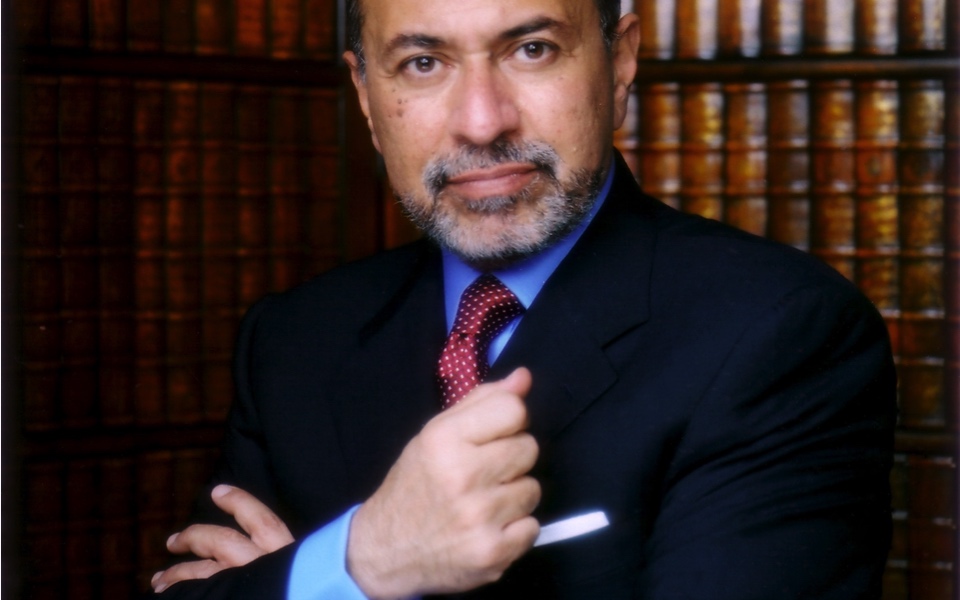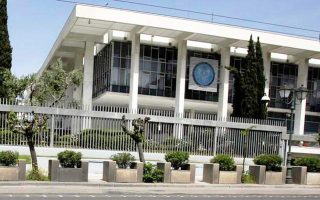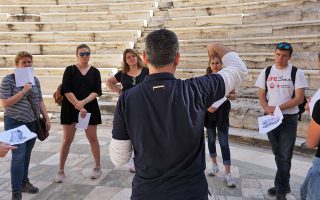Top Egyptian investor calls for action plan to bolster Greek-Egyptian cooperation

The recent warm climate between Greece and Egypt is not solely limited to defense cooperation; it is also attracting the interest of the business community. Shafik Gabr, president and founding member of the International Economic Forum in Egypt and founder of the Arab Global Forum initiative, believes it is the right time to deepen investment and economic relations between the two countries.
Kathimerini reached out to Gabr – who is also chairman and founder of ARTOC Group for Investment and Development, a multi-sectoral portfolio investment company, and member of the World Economic Forum’s International Business Council – to discuss the potential for investment and trade relations between Greece and Egypt, and the need to build an action plan for them to flourish.
The divide between East and West seems to have grown in recent years? What role can Egypt and Greece play in dialogue initiatives to bridge that gap?
Where there are cultural, religious, ideological differences, there is a gap of understanding that needs to be bridged. Both Egypt and Greece, independently and jointly, have an immense history and a vast record of experience across centuries and decades of civilization, achievement, inter-cultural exchange and religious moderation and tolerance. In addition to all this, and most important in my opinion, is the nature and character of the peoples of Greece and Egypt, who are extremely aligned to bridge-building and reinforcing mutual understanding. The joint history of Greeks and Egyptians, their culture and their geographic presence, have a massive potential to create the perfect partnership for a dialogue initiative to bridge the gap that is now globally expanding – as globalization declines, populism rises and human interaction is reduced, allowing for misperception and conflict.
In which areas do you think Greek-Egyptian investment and economic relations could further expand?
Firstly, there is a great potential for cooperation in the maritime industry. Greece has a global shipping experience from which Egypt can benefit. With Egypt’s Suez Canal and ports on the Mediterranean and the Red Sea, and with Greek experience, Egypt can become a major shipping and transshipment hub. In the area of energy, Egypt and Greece have areas of mutual cooperation. Also, Greece is a major exporter of tobacco where Egypt is a major importer.
Furthermore, both the Hellenic arms industry and the Egyptian military production sector can cooperate in various areas of both defense and civilian products. In areas of new technology, both Egypt and Greece have rising tech startups. Greece, as a member of the European Union, and Egypt, as the largest Arab country with a population of over 100 million, have various areas of cooperation in this field. Moreover, joint Greek-Egypt tourism initiatives can be very valuable. Both countries are cradles of civilization and have such a rich history and culture – exploring them in parallel can be very enriching for tourists. All the way from Athens and the Greek islands, to the Red Sea and Sharm El Sheikh, there is ample opportunity not only for exploring the history and culture, but also for sports such as windsurfing or sailing in the warm and sunny Mediterranean climate of both Greece and Egypt.
What are the biggest challenges in investment and trade relations between Greece and Egypt? How can we overcome them?
The main challenges are twofold: lack of awareness and bureaucracy. To overcome them, my suggestion is to create a Greek-Egyptian business council which would be led by the prime ministers of both countries, and which would consist of 15 leading Greek business leaders and 15 leading Egyptian business leaders who can provide details in terms of how the aforementioned issues can be dealt with. Secondly, I would propose establishing a free economic zone in both Egypt and Greece as an initial incentive for five years – to really attract business and cooperation in the public and private sector in the two countries.
Why hasn’t the Egyptian-Greek partnership flourished in the past, despite repeated calls and attempts?
In my opinion, this was because the vision was not well articulated. In a way it was simply a desire but without political will. With today’s leadership, and with mutual interest and challenges, I sincerely believe that it is the best time to create a blueprint, or a vision paper if you will, to be accompanied by a concrete plan of action and a timeframe of not more than six months to implement. We must not let go of this giant potential for business growth and economical development for both countries through mutual cooperation, rooted in a shared historical and cultural similarities and coexistence.





